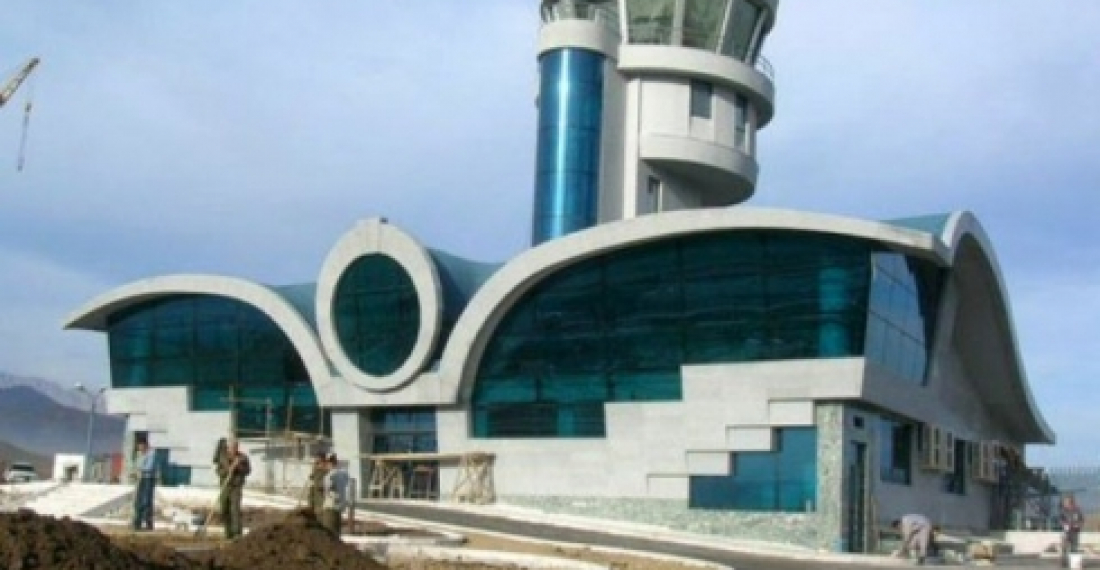The Co-Chairs of the OSCE Minsk Group (Ambassadors Robert Bradtke of the United States, Igor Popov of the Russian Federation, and Jacques Faure of France) and Ambassador Andrzej Kasprzyk (Personal Representative of the OSCE Chairperson-in-Office) traveled July 10-13 to Baku, Nagorno-Karabakh, and Yerevan.
In an unsually long statement, issued on 13 July, the diplomats informed of their visit, and whilst reiterating previous positions of the Minsk Group co-Chair countries, introduces some new wording connected with the planned opening of Stepanakert Airport by the authorities of the self declared Nagorno-Karabakh Republic. The statement says:
"In Baku, the Co-Chairs met with President Aliyev and Foreign Minister Mammadyarov; in Nagorno-Karabakh they met with de facto authorities; in Yerevan, they met with President Sargsian, Foreign Minister Nalbandian, and Defense Minister Ohanyan. On July 11, the Co-Chairs again crossed the Line of Contact by foot.
On July 12, they traveled from Nagorno-Karabakh to Yerevan via Kelbajar, their first visit to that region since the October 2010 Field Assessment Mission. In all their meetings, the Co-Chairs reaffirmed their countries' resolute commitment to a peaceful settlement of the Nagorno-Karabakh conflict, as the Presidents of the three Co-Chair countries emphasized in their June 18 joint statement at Los Cabos. The Co-Chairs continued discussions from their June 18 meeting in Paris with the Foreign Ministers of Armenia and Azerbaijan. The Co-Chairs expressed their deep concern over recent incidents along the frontlines, and reiterated that the sides' political will to achieve peace is best demonstrated by refraining from maximalist positions, respecting the 1994 ceasefire agreement, and abstaining from hostile public rhetoric.
Regarding reports of the planned opening of an airport in Nagorno-Karabakh, the Co-Chairs received renewed assurances from the sides that they will reject any threat or use of force against civil aircraft, pursue the matter through diplomatic steps, and refrain from politicizing the issue. The Co-Chairs reaffirmed that operation of this airport cannot be used to support any claim of a change in the status of Nagorno-Karabakh, and urged the sides to act in accordance with international law and consistent with current practice for flights over their territory.
The Co-Chairs plan to meet again separately with the Foreign Ministers of Armenia and Azerbaijan in order to prepare for a joint meeting of the Ministers in September."
Commonspace.eu political editor said in a comment: "The diplomats representing the three OSCE Minsk Group co-Chair countries are trying very hard to maintain the momentum of the negotiations, despite an obvious impasse in the positions of the two sides. The issue of the opening of Stepanakert Airport has arisen because of the imminent opening of the facility, which has in fact been ready for operation for some months. There is concern that this may trigger another wave of violence on the line of contact, although the prospect that Azerbaijan shoots down civilian aircraft has receded. The particular choice of words of the Minsk Group in their statement on this issue seems to suggest to the sides not to politicise the matter, and treat it as a technical issue, similar to the way the sides have continued throughout the conflict to allow flights to overfly their territory on their way to the airports of the other side."
source: commonspace.eu with osce.org
photo: Stepanakert Airport







